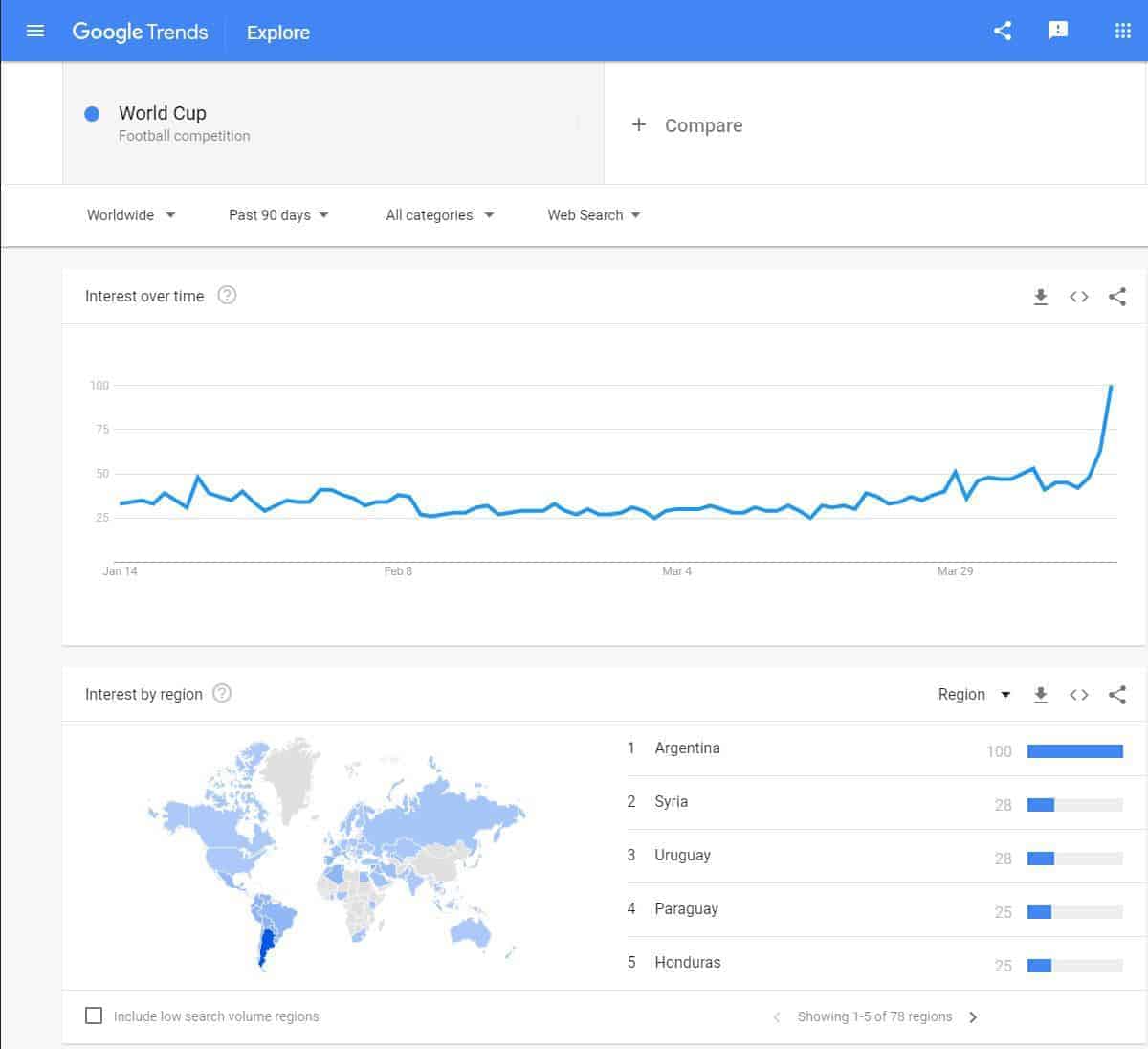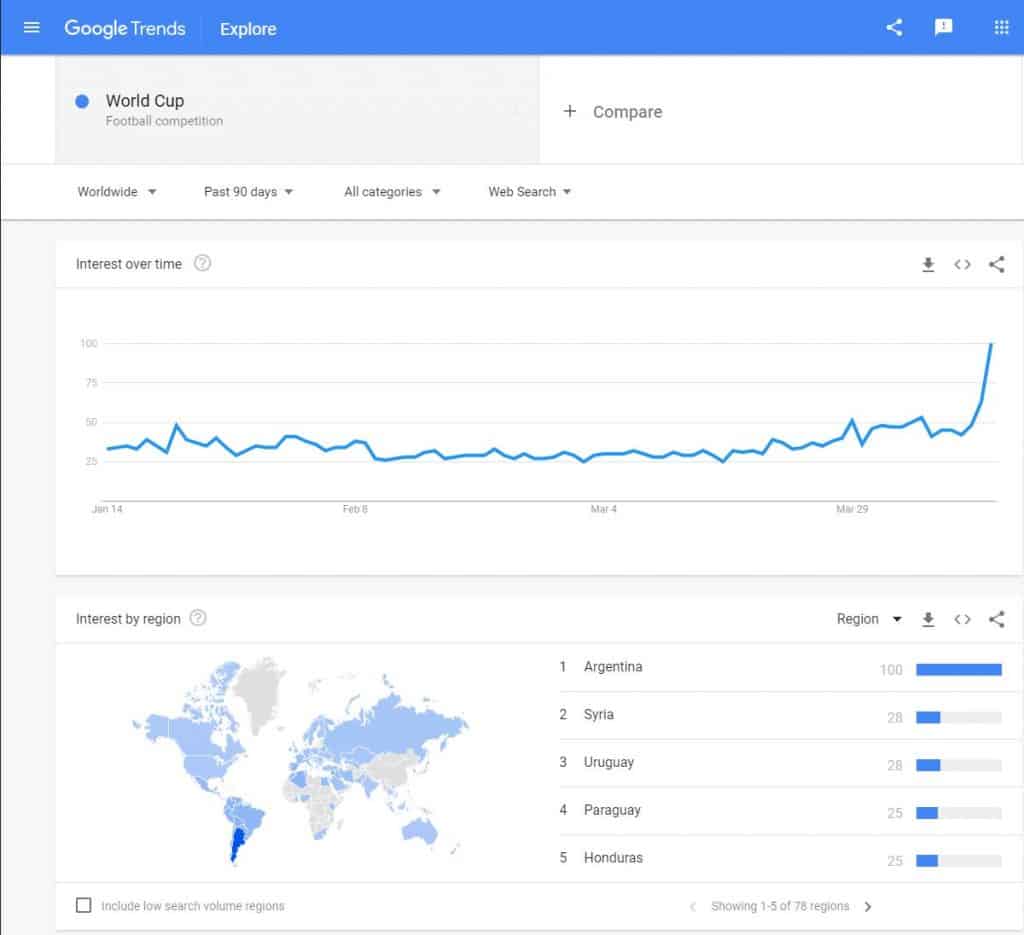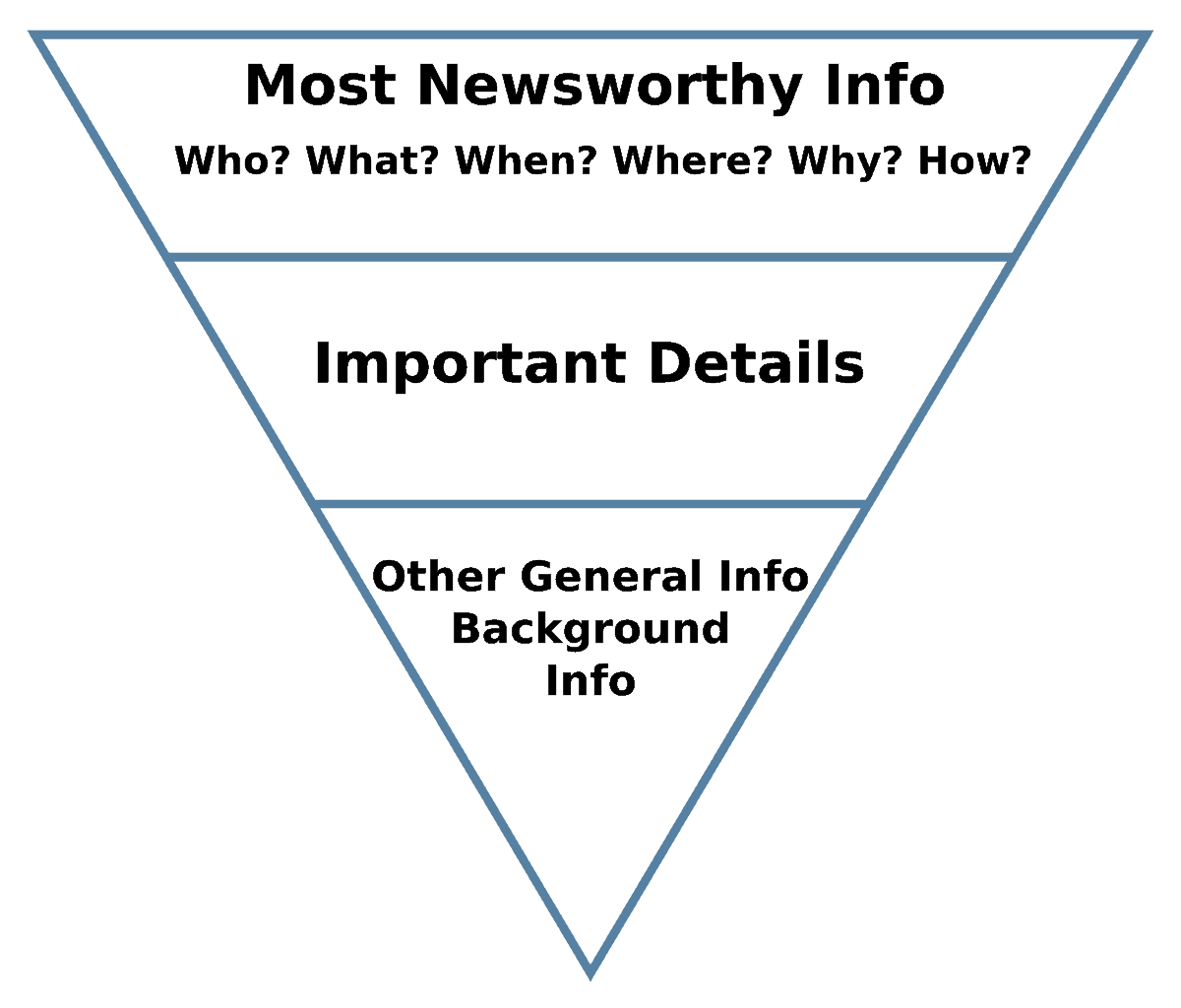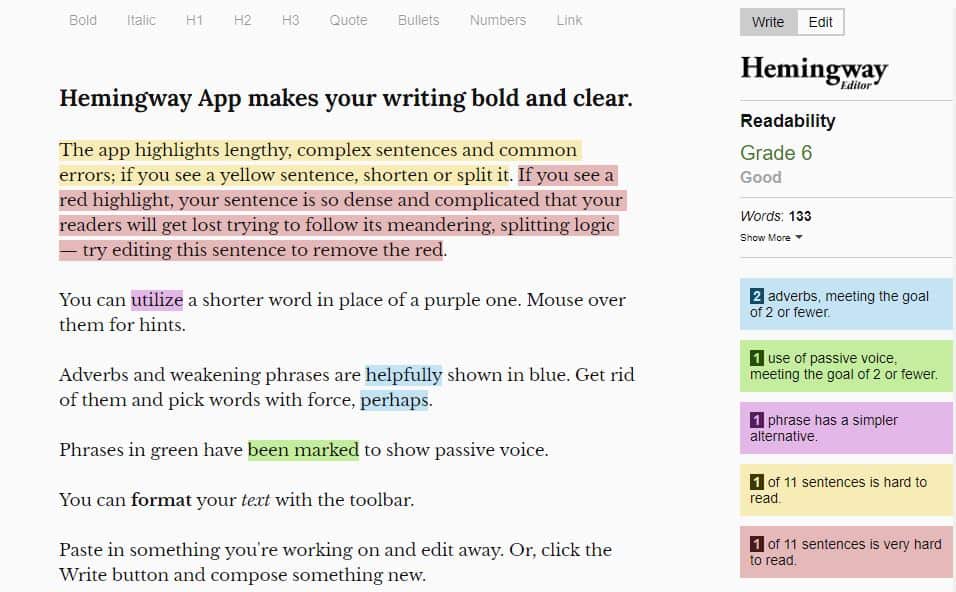
17 Content Writing Tips You Need To Use

According to data reported by Time magazine, the average website visitor spends just 15 seconds before clicking away. In order to get new customers and increase overall sales, you need longer engagement than that! With good web content writing and good web content writers, you can build the trustworthy aura and valuable expertise that will keep your readers longer and encourage them to return more often.
The average website visitor spends just 15 seconds ⏱ before clicking away, according to @TIME. #SEO #Marketing Click To TweetSo how do you write good content that convinces readers to stay? Two solutions: Hire a content writer or write better content. In that case, do you need a web content writer? Click here to check out our writing services. Want to do it yourself? Here are 17 tips to turn your writing into stellar content that drives sales and increases leads.
17 Tips and Tricks for Effective Web Content Writing
These effective content writing tips will take your online publications and communications to the next level.
1. Explore Your Target Audience
Many small business owners begin writing website content without conducting a study of their desired readership. Content writing should provide value for your web visitors and social media followers by solving a problem or fulfilling a need.
Create personas that match your target market and conduct research to figure out what those individuals want from your business. Although this content writing tip is crucial for the growth of your business, it is even more so for the development of focused, effective content.
2. Build a Web Content Strategy
Your editorial calendar will serve as the cornerstone of your content marketing strategy. Many business owners find it helpful to develop a quarterly calendar. List your goals for that quarter, then brainstorm web content ideas that can support those goals.

For example, if a car dealership wants to drive new SUV sales, it may post content highlighting how certain vehicles can go off-road at local parks and trails. That dealership should use a web content writer or in-house writer to research these ideas and write blog posts that appeal to the needs and wants of its readership.
How To Create A Successful Web Content Strategy
Marketing goals should always drive your content strategy. Some of the most common goals of content marketing include:
- Creating new profit streams
- Getting more marketing bang for your buck
- Increasing sales of your products and services
- Building loyalty and trust with existing and potential customers
- Generating leads for potential new customers
- Connecting with your audience
- Building awareness for your brand
Build these goals into your quarterly calendar and keep them in mind as you produce web content. Within the quarterly calendar, set monthly and weekly goals for developing and publishing content.
Consistency is key to developing an online audience, especially if you are new to this type of marketing and still building your readership. Ideally, web content writing efforts should drive sales, cost and/or customer retention.
Additional Strategy Tips
Usually, it is better to have two or three solid, well-defined web content goals. When you have a long list of potential goals but have not assigned priority them, your content may come across as unfocused and is less likely to be effective.
Consistency is key to developing an online audience.
A detailed editorial calendar with topics mapped to your goals will guide each successful content writing campaign. However, even the most granular plan should be flexible enough to accommodate current events and other fresh items that pop up throughout the year. A good web content writer can help you get the balance right.
3. Know the Value of Keyword Research in Content Writing
Ranking higher on Google and other search engines is one of many content marketing benefits. For this reason, you need a web content writer who is well-versed in search engine optimization, or SEO. Keyword research can help you target your writing efforts to the right potential audience for your products and services. You can illuminate the terms targeted by your competitors as a way to set yourself apart from similar businesses.
One common mistake? Cramming your web content with keywords that don’t make grammatical sense. Search engine algorithms penalize sites for this practice, called keyword stuffing, and prefer sites that use more natural keyword terms to display topical relevance.
Start your search with any of the plethora of free keyword research tools available online or opt for some of the more robust paid tools, such as SEMrush. Choose a program with an intuitive interface and review the terms that led users to your current site. You can then develop keyword ideas based on your goals, marketing budget and target audience as defined in step one.
4. Seek Out Writing Inspiration
Even the top web content writers experience writer’s block every now and then. In content marketing, coming up with a new angle for a tried-and-true topic can be challenging. Try free tools, such as Google Trends, to see what’s new with your target keywords.

Browse online forums and social groups relevant to your industry to learn about the topics important to your potential readers. You just might get an idea for new territory your competitors have yet to tackle.
How To Use Every Resource For Content Inspiration
Your existing readership can also be a valuable source of content ideas. Consider conducting a quick survey to find out what type of web content they need and value. You can offer an incentive such as a free white paper or ebook in exchange for this input. You need a web content writer who can repurpose the data into something fresh and illuminating.
You can also cover industry events, trends and statistics. A fresh take on newsworthy items supports your position as a thought leader within your niche.
When you have an idea for a great story, write it down. If you feel lacking in inspiration, flip through your notebook or scroll through your digital file to take advantage of those earlier musings. You’ll never know where you might have the seed of an engaging blog post.
5. Start With a Content Outline
When you sit down to write a blog post or web page, you want to make sure you clearly convey your ideas to the audience. Instead of meandering and failing to touch directly on your core ideas, structure your post with a simple list of the items you want to express. Then go back and fill in this outline with the meat of your content, including anecdotes, details and statistics.
Every engaging web article starts with an enticing headline. Search Engine Journal recommends pulling a particularly compelling quote from your content if you’re struggling to come up with a great opening header.
A detailed outline will also help you stay focused as you write. If you lose the point of your article, you will likely lose your readers along the way.
6. Use the Inverted Pyramid
While the inverted pyramid is an old concept from the days of print newspapers, you can also apply this principle to web content writing. When you organize a web page or blog post, simply put the most important information at the top of the page. This strategy allows your visitors to quickly and easily find what they’re looking for when they visit your site.

Start the post with a headline that draws your readers in without becoming misleading clickbait. Entice readers to learn more, then grab their attention quickly with the first two lines.
7. Think About Web Format
Search Engine Journal recommends this simple format by Donald Miller as a road map for any piece of web content.
- The Character
- A Problem
- The Plan
- The Success
For example, the character in a blog for a car dealership might be wondering where to take his new four-wheel-drive SUV on the weekends. The dealership offers a plan to solve this problem with a list of the best off-roading trails in the area, creating success and value for the reader.
“How to” articles, lists and comprehensive guides all do well with audiences seeking engaging, usable web content that helps solve their pain points. Many of these formats also lend themselves well to evergreen content.
Evergreen pieces should be well-researched, and when updated frequently, they provide real value for the reader and encourage backlinks that boost your site’s SEO.
The Content Marketing Institute recommends trying infographics, glossaries, Q&As with industry thought leaders, frequently asked questions pages, checklists, case studies and original research to grab visitors’ attention over and over again. If you hire a website content writer, encourage him or her to play with the format and consider creative article structures.
8. Prioritize Readability in Web Content
Writing for the web works best with short sentences and brief, scannable sections. Frequent headings and bite-size chunks help guide your reader through your content. By contrast, slogging through long pages of text with few points of entry can feel like a chore.
Elements that make a piece of web content more navigable include colored words and headings, bold to highlight important points, bulleted lists and short paragraphs (generally 100 or fewer). Subheads also do double duty by helping search engines locate and correctly categorize your content.
You or your web content writer should make sure your blogs and web pages are written at an appropriate literacy level for your audience. For most online content, avoid exceeding an 8th-grade reading level. You can ask your content writer to check or to use an online tool like the Flesch-Kincaid readability scale.
Our most important content writing tip to you is to avoid attacking these content projects on your own. Whether you use an online tool to improve readability or hire a content writing service to do the work for you, having help can relieve a lot of stress and make your content the best it can be.
9. Rely on an Editor

Even the best web content writer teams up with an editor who reads his or her work before publication. The editor looks for and corrects errors, makes formatting suggestions and ensures that the piece makes sense for the target audience.
The editor will also ensure that your content speaks directly to the audience. Write in active voice rather than passive voice, which can sound stodgy and academic while making your sentences more difficult to understand.
If you are pressed for time, did not hire a content writer and don’t have an editor available, read your content back to yourself out loud. This is a good way to catch typos, awkward phrasing and writing errors that you should eliminate from copy before going live. You can also run your piece through a free online tool like Grammarly.
10. Create Calls to Action
When readers derive value from your web content, they are more likely to take the next step to connect with your business. The call to action, which typically comes at the end of an article or blog piece, encourages the reader to take that next step.
How To Write a Good Call To Action
Depending on the goals of your content marketing, create some of the following common effective calls to action:
- Make a purchase, often with a coupon code
- Share the content with followers on social media
- Schedule a demonstration or consultation with a member of your team
- Provide an email address to sign up for a newsletter
- Download resources, ebooks, tips or white papers
Not only does a great call to action build your connection with your potential audience, but it also allows you to track the return on investment you receive from your marketing efforts. For example, you’ll be able to tell that 15% of the visitors to your blog post decided to subscribe to your email updates.
Calls to action should be brief and clear. Use actionable verbs like join, connect, explore, download and create, as well as other appropriate words of encouragement.
11. Stick to Familiar Words
According to Search Engine Journal, simplicity and clarity are the calling cards of good web content writing. Instead of using complex industry jargon and esoteric language, use straightforward words that the majority of your readers will easily understand.
For example, why say utilize when you could just as easily say use? Ask your editor to go through each post and strip out complicated lingo and fluffy language that does not add to your meaning.
Why You Should Use Words That People Know
Simple terms also reflect the words people use when they search online, which will also boost your Google rankings. Facilitate, obtain and in order to are other examples of words and phrases that should often be replaced with basic, everyday alternatives. The Hemingway App is a free online tool to identify and eliminate common writing issues that can bog down your prose.

If you write content for a technical or scientific industry, some jargon may be unavoidable. However, you can make it palatable to the reader by spelling out all acronyms and defining unfamiliar words.
Word choice is also important when it comes to variety. Even when prioritizing simplicity, avoid using the same terms repeatedly. Grab a thesaurus if you need to mix it up a bit, and eliminate extraneous words and phrases that don’t add to your message. One exception: When referring to products, services or other specific words with meaning for your brand, use the same phrasing each time to build customer recognition.
12. Bolster Credibility
Demonstrate industry expertise by citing resources, data and expert testimony. Sources, numbers and client testimonials all display your prowess without coming across as too sales-oriented.
Avoid filling your website content with vague promises on which you are unable to deliver. When you borrow information from a source, make sure to rewrite it in your own words. When you use a direct quotation, keep it short and indicate clearly with quotation marks where the citation begins and ends, along with the source.
Although most content writers use competitor sites to get ideas and strategies for their own marketing, any work you publish on your website should be completely original.
If you aren’t sure whether your copy varies substantially enough from your sources, run it through a plagiarism checker like Copyscape. You can catch and fix any errors before your post goes live. In addition, vague, generic or poorly supported information can harm your credibility.
13. Consider Guest Bloggers
You don’t have to write every word of content on your site for it to represent your authentic brand voice. Ideal guest blog writers are industry thought leaders who have something to offer your audience.
Returning the favor with your own guest post on their site builds a partnership and drives natural traffic, a win-win situation for both businesses. Make sure you partner with a brand that you trust to offer real value to your readers.
When searching for guest bloggers, scour social and business networking sites such as LinkedIn for publications within your wheelhouse. Connect with the authors and determine whether the potential for a beneficial partnership exists before introducing yourself. Existing customers can also serve as subject matter experts who have a unique point of view to offer your clientele.
14. Optimize Every Web Page

Refer to this checklist before you go live with a post or web page to make sure you get the most SEO bang for your buck:
- Title tag: This 55-character tag should describe the topic of your page and will appear in your reader’s browser tab. Longer tags will be cut off by Google.
- Metadata: This section, usually 160 characters or less, appears as the featured snippet about your page in search engines.
- Target keywords: Naturally include your keyword phrases two to five times in each post, but avoid single words since you will rarely be able to improve your ranking for those.
- Similar phrases: In addition to your keywords, try to incorporate synonym phrases that people might search, as long as it doesn’t sound forced.
- H1 heading: This tag indicates the title of your web page or blog post.
- Links: An optimized post should include both links to other pieces of internal content and to external sources and partners as appropriate.
- Calls to action: Encourage the reader to take the next step by making it easy for them to do so with forms, buttons and links to social media.
How To Get Even More Specific With SEO
Customize your checklist to include optional items, such as:
- H2 headings that guide your reader through the web content
- Featured image that will appear if a reader shares your post on his or her social media feeds
- Numbered and bulleted lists
- Infographics
- Video and audio clips
- Slideshows
15. Think About the Emotional Impact of Content Writing
It’s hard to plan for content to go viral. An article or blog post that reaches the masses often results from a combination of quality, connection and timing. One undeniable factor, however, is the ability to engage with your reader’s emotions.
Before going live, ask yourself whether a piece of web content has the emotion you need to touch your readers’ hearts. For example, if you are a family law attorney, you may want to highlight the importance of family in every blog post.
Packing your content with details makes a big difference for your reader. When you have clearly defined personas, you can speak directly to the needs and concerns of the audience. The more specific your writing, the more likely it will be to hold attention and to keep the reader coming back for more.
16. Weigh the Benefits of Outsourcing Content Writing
Many small businesses start with an in-house website content writer and quickly realize that person doesn’t have the skills, capacity, resources or time to meet the goals of their content marketing plan. Analyze the advantages of outsourcing your content, such as:
- The ability to create copy that paints your brand in the best light without coming across as overtly promotional and thus untrustworthy
- The ability to boost your content volume beyond what your internal team can produce. Remember that every new piece of web content is an opportunity to attract new readers, to convert existing readers and to improve your brand’s SEO rankings
- An increase in the time and resources you can dedicate to other areas of your business
- The professional skill level you need to truly make an impact with your content marketing strategy
- Customizable content packages that can be scaled and adjusted based on your needs
- Expanded resources compared to what you have in-house, including an extensive team of freelance writers with a range of specialties
- Access to expanded services such as digital content strategy, e-books, white papers, social media planning, stock images, product and category descriptions, proofreading, editing and content curation
17. Calculate the Cost Savings
At BKA Content, we estimate that we save our clients around 37% when they use a website content writer from our network compared to the cost of hiring a full-time, in-house content marketing professional. The average salary for an in-house writer is $50,000 a year, plus the funds used for training, hiring, benefits, taxes, equipment, office space and additional overhead.
With web content outsourcing, depending on your needs, you can opt for either a self-service or managed service content account. With the former option, you place orders directly using an online platform. And with the latter option, you work closely with an account manager who helps plan and execute your content strategy.
Your Content Should Provide Value, So Get a Web Content Writer!
It’s not enough to just write web content, throw it at the wall and see what sticks. In order to be successful, you need to go into the content writing process with a plan, execute and write with your readers in mind. Providing interesting, helpful and optimized content with the help of a web content writer is your best bet to appeal to both search engines and potential customers. If you’re interested in learning more about how our web content writing team can save you time and money while increasing reader engagement, contact us today.
- Content Marketing Guide for Insurance Companies - May 31, 2023
- How To Improve Marketing to Baby Boomers - May 27, 2023
- What is the Ideal Twitter Header Size - May 27, 2023


